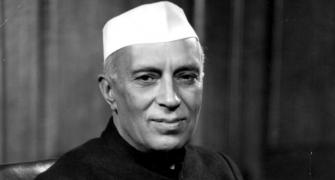Steel shares lost further ground on Friday after having already pared gains over the last few trading sessions amid general weakness in the market due to war.
Most steel majors were in the red today hit by reports that steel prices have softened. Private sector steel major Tisco slipped 1.4% to Rs 133.25 on heavy volumes of 1.14 million shares on BSE.
Bhushan Steel (down 8.5% to Rs 25.60), Essar Steel (down 1.3% to Rs 7.15), Jindal Iron & Steel (down 1.5% to Rs 76.50), Steel Authority of India (Sail) (down 1.6% to Rs 9.20) and Ispat Industries (down 1% to Rs 4.60) were other losers.
In the last one month to 27 March 2003, the combined market cap of nine large steel makers declined 11% to Rs 10,825.13 crore (Rs 108.25 billion) from Rs 12,203.83 crore (Rs 122.03 billion).
The further softening of steel scrips on Friday follows reports that the long spell of steel price increases that began in April last year, may finally end with Indian producers planning a marginal reduction in prices from 1 April 2003. The cut, of about Rs 500 per tonne, is because of a $20 per tonne fall in international steel prices, owing to a stock build-up in China.
The fall would mainly reflect in prices of hot rolled coils. Essar Steel is a leading manufacturer in this segment.
A huge demand increase in China had led to steel prices firming up over the past few months. Prices, that hovered at Rs 11,000 per tonne till March last year, witnessed consecutive increases to touch Rs 19,000 per tonne in March 2003. The most recent price rise was propelled by a surge in demand from China.
But prices of other products like galvanised steel and other grades have now started to soften, say reports
Meanwhile, domestic demand for steel is expected to increase what with the government's major thrust on infrastructure development in the Union Budget for 2003-04. Principally, investments will be made in railways, airports and sea ports through an innovative funding mechanism.
The Railway Budget for 2003-04 has also proved to be beneficial to the steel sector, with the cut in freight rates for steel. Freight costs account for nearly 11% of the total cost of production of steel companies, and nearly 50% of their output is transported by rail. Steel companies are expected to save nearly 2.8% in freight costs and 0.32% of the total cost of production. There will also be savings in freight on scrap and iron ore as well, but savings will differ from company to company depending on the raw material mix and the distance from mines.
More Hot Pursuits






